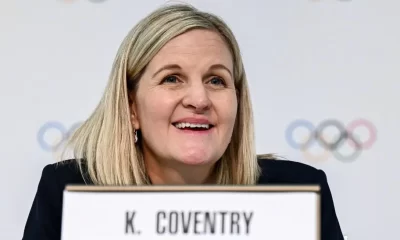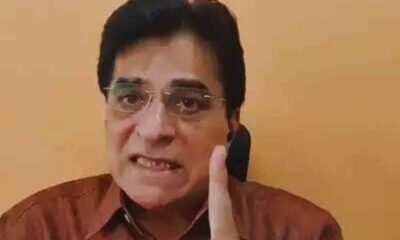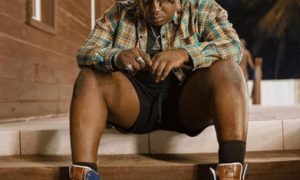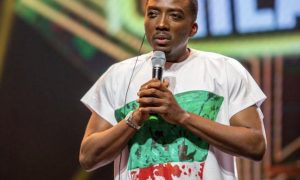Latest News
Peng Shuai: International Olympic Committee accused of ‘publicity stunt’ over video
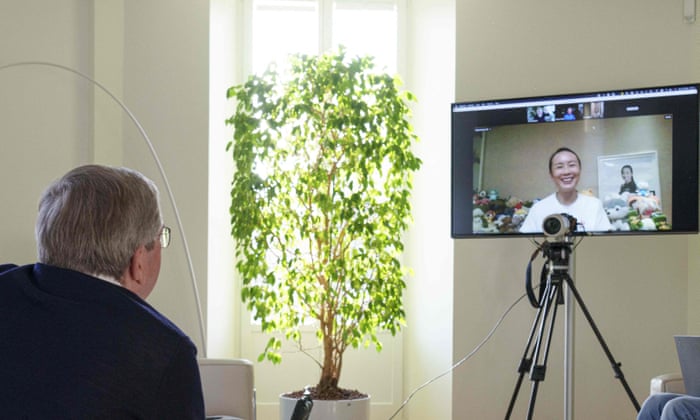
The International Olympic Committee has been accused of engaging in a “publicity stunt” over the wellbeing of the Chinese tennis player Peng Shuai, amid growing momentum behind a diplomatic boycott of the Beijing Winter Olympics.
The IOC, under increasing pressure to intervene in Peng’s case after the former doubles world No 1 accused a former senior Chinese government official of sexually assaulting her, held a video call with Peng on Sunday and subsequently announced she was “safe and well”.
Peng, whose whereabouts have been a matter of international concern for almost three weeks, appeared at a dinner with friends on Saturday and a children’s tennis tournament in Beijing on Sunday, photos and videos published by Chinese state media journalists and by the tournament’s organisers show.
But the assurances have done little to quell the concerns of human rights groups and the Women’s Tennis Association.
“It was good to see Peng Shuai in recent videos, but they don’t alleviate or address the WTA’s concern about her wellbeing and ability to communicate without censorship or coercion,” a WTA spokesperson said.
“This video does not change our call for a full, fair and transparent investigation, without censorship, into her allegation of sexual assault, which is the issue that gave rise to our initial concern.”
After the 30-minute call, attended by the IOC president, Thomas Bach, its China representative Li Lingwei and its athletes’ commission chair, Emma Terho, the IOC said Peng was “safe and well” but would “like her privacy to be respected at this time”.
“That is why she prefers to spend her time with friends and family right now,” it said. “Nevertheless, she will continue to be involved in tennis, the sport she loves so much.”
Nikki Dryden, a human rights lawyer and former Olympic swimmer for Canada, labelled the IOC’s handling of Peng’s case as a “media exercise” designed to allay growing threats of diplomatic boycotts as China prepares to host the Winter Games in February.
The IOC has avoided involvement in the country’s human rights record, which includes the treatment of the Uyghur Muslim minority and its political crackdown in Hong Kong.
“I’m so relieved she’s alive, but the execution of this proof-of-life video is really troubling from a safeguarding perspective,” Dryden said.
“It seems very political to me that Bach would have this call with the athletes’ commission chair – who is probably somewhat appropriate – and then the IOC member from China. That’s not a safeguarding call by any means. Tennis should have been able to have that call, it should have been a safeguarding officer having that call – not a publicity stunt.
“Nothing in the press release from the IOC makes me feel comfortable that she is safe, that she feels she’s not being retaliated against or coerced. They have taken control of this because they are so concerned with the narrative around Beijing [Winter Olympics] they didn’t want anything to go wrong with this.”
Elaine Pearson, the Australia director of Human Rights Watch, criticised the IOC for taking part in the video. “Frankly, it is shameful to see the IOC participating in this Chinese government’s charade that everything is fine and normal for Peng Shuai. Clearly it is not, otherwise why would the Chinese government be censoring Peng Shuai from the internet in China and not letting her speak freely to media or the public.”
The human rights activist Craig Foster, a former Australian international footballer, said where the WTA had demonstrated strength and firm resolve by threatening to pull tournaments out of China, the IOC had “placed political and commercial considerations ahead of transparency, accountability and justice”.
He said: “The IOC’s staged conversation with Peng Shuai could not be more tone deaf in terms of women’s rights and protections and in dealing with a survivor of sexual assault.
“The concept that a conversation with Thomas Bach followed by a ‘catch-up over dinner’ is a satisfactory resolution of a very serious matter or an appropriate response to allegations of sexual abuse by an athlete which include censorship and likely coercion by an IOC member state, is emblematic of the failed concept of Olympism.”
On 2 November, Peng posted on Chinese social media that the former vice-premier Zhang Gaoli had coerced her into sex and they later had an on-off consensual relationship. The post was quickly deleted and the topic has been blocked from discussion on China’s heavily censored internet.
Neither Zhang nor the Chinese government have commented on Peng’s allegations.
France’s foreign minister called on Sunday for Chinese authorities to let Peng speak publicly.
“I’m expecting only one thing: that she speaks,” Jean-Yves Le Drian told LCI television, adding there could be unspecified diplomatic consequences if China did not clear up the situation. His office did not immediately respond to a request for comment on the IOC’s statement.
Advertisement
The US and Britain have also called for China to provide proof of Peng’s whereabouts.
Current and former tennis players, including Naomi Osaka, Serena Williams and Billie Jean King, joined the calls seeking to confirm she was safe, using the social media hashtag #WhereIsPengShuai?
The men’s singles world No 1 Novak Djokovic said it would be strange to hold tournaments in China unless the “horrific” situation was resolved.


